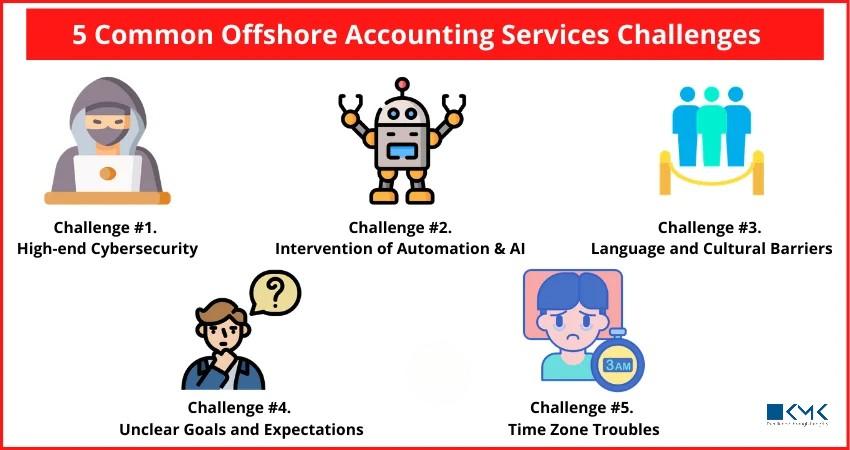Overcoming Cultural and Communication Challenges When Hiring Offshore CPAs

In today’s globalized accounting world, US CPA firms are increasingly turning to offshore staffing to overcome talent shortages, reduce costs, and boost productivity. Yet, while offshore collaboration brings tremendous value, it also introduces unique hurdles—especially cultural and communication differences.
So, how can firms successfully navigate these challenges when they hire offshore CPA firm to build reliable global accounting teams? Let’s explore the strategies that make offshore collaboration not just possible—but profitable and sustainable.
Why Cultural Alignment Matters in Offshore CPA Hiring
When you work with an offshore team, it’s not just about accounting knowledge—it’s about synergy. Cultural alignment determines how teams communicate, approach deadlines, interpret feedback, and handle client expectations.
A mismatch in work styles can lead to delays, misunderstandings, or quality issues. On the other hand, firms that embrace cultural integration find offshore teams become true extensions of their in-house staff—sharing the same commitment, standards, and sense of belonging.
Think about it: if your offshore CPA understands not just the task, but the “why” behind it, the results improve dramatically.
Common Cultural and Communication Challenges
Before solving the problem, it helps to know what you’re up against. Here are the most frequent issues US firms face when managing offshore CPA teams:
1. Different Work Cultures
US firms often have a fast-paced, results-driven approach. Offshore professionals, depending on their country, might prioritize hierarchy, consensus, or relationship-building over speed. This can lead to differences in expectations regarding feedback or initiative.
2. Language and Tone Misinterpretation
Even when both sides speak English, tone and context can be misunderstood. What sounds “direct” to an American CPA might come off as “rude” elsewhere, while polite hesitation from an offshore accountant may be misread as a lack of confidence.
3. Time Zone Barriers
Time differences can affect communication flow, delay decision-making, and make meetings difficult to schedule—especially when urgent financial tasks are on the line.
4. Varying Definitions of Deadlines and Quality
“End of day” or “urgent” might mean different things across teams. Similarly, what’s considered “review-ready” in one country may not meet US accounting quality standards unless expectations are clarified early.
5. Limited Face-to-Face Interaction
Without in-person meetings, it’s harder to build trust or team spirit. Miscommunication may snowball if not addressed with structured virtual engagement.
Practical Strategies to Overcome These Challenges
1. Set Clear Expectations from Day One
Transparency is the cornerstone of effective offshore collaboration. Define scope, responsibilities, quality standards, and timelines at the start. Encourage open communication so offshore CPAs feel comfortable asking questions early—before mistakes happen.
Consider creating a shared onboarding document that includes key workflows, terminology, and reporting protocols. This promotes consistency and accountability.
2. Build Cross-Cultural Awareness
Investing time to understand your offshore team’s culture pays off. Learn about their communication norms, holidays, and working styles. Even small gestures—like greeting them in their language or acknowledging local festivals—can go a long way in building rapport.
Similarly, train your in-house team on how to interact effectively across cultures. Cross-cultural awareness workshops or short team sessions can prevent many misunderstandings before they start.
3. Use Technology for Transparent Communication
Collaboration tools like Slack, Microsoft Teams, and Zoom help bridge the distance. But beyond tools, it’s about setting the right rhythm:
-
Hold short daily or weekly check-ins.
-
Use video calls for complex discussions—it humanizes the interaction.
-
Document key decisions and share meeting notes.
Recording processes in tools like Asana or ClickUp can also reduce dependency on verbal instructions and ensure clarity.
4. Align Working Hours Strategically
Time zone differences can be managed efficiently by overlapping at least 2–3 working hours per day. This window should be used for meetings, approvals, and feedback loops.
Some CPA firms assign a “bridge manager” who coordinates across both time zones, ensuring tasks continue smoothly while both teams maintain work-life balance.
5. Encourage Two-Way Feedback
Communication shouldn’t flow only from the US side. Offshore teams often hesitate to share challenges or improvement ideas—encourage them to do so. Create an environment where feedback is valued and responded to constructively.
Regular reviews, performance discussions, and anonymous surveys can reveal hidden pain points and boost engagement.
6. Promote a Unified Team Culture
Treat your offshore CPAs as an extension of your internal staff, not as contractors. Celebrate milestones together, recognize achievements, and include them in firm-wide updates.
Use virtual team-building sessions or “Finance Fridays” where both sides share wins or personal highlights. These gestures help build emotional connection, which directly translates into better collaboration and retention.
7. Choose the Right Offshore Partner
Finally, success depends on choosing the right partner. A trusted offshore staffing company understands cultural alignment, communication training, and US accounting standards.
When you hire offshore CPA firm through an experienced provider, you gain access to pre-vetted professionals who are not only technically skilled but also trained to match your firm’s work ethic, client culture, and expectations.
Look for providers that offer:
-
CPA-trained or US GAAP-compliant staff
-
Dedicated client success managers
-
Transparent communication channels
-
Flexibility to scale your team
-
Proven experience with US accounting firms
How Top US Firms Are Making It Work
Leading CPA firms now view offshore staffing not as outsourcing, but as strategic collaboration. They integrate offshore CPAs into client projects, ensure joint training, and standardize communication tools.
The result? Increased capacity during busy seasons, 30–50% lower operational costs, and a stronger focus on client advisory services—without compromising quality or control.
By blending technology, empathy, and leadership, these firms are building global accounting ecosystems that thrive on trust and efficiency.
Final Thoughts
Cultural and communication barriers are real, but they’re far from insurmountable. With the right mindset and partner, you can turn offshore collaboration into a competitive advantage.
Remember—offshore staffing isn’t just about saving money; it’s about scaling smarter, diversifying talent, and building resilience in an increasingly interconnected accounting world.
So if you’re planning to hire offshore CPA firm this year, focus not just on skills—but on synergy. Because when communication flows and cultures align, success naturally follows.






